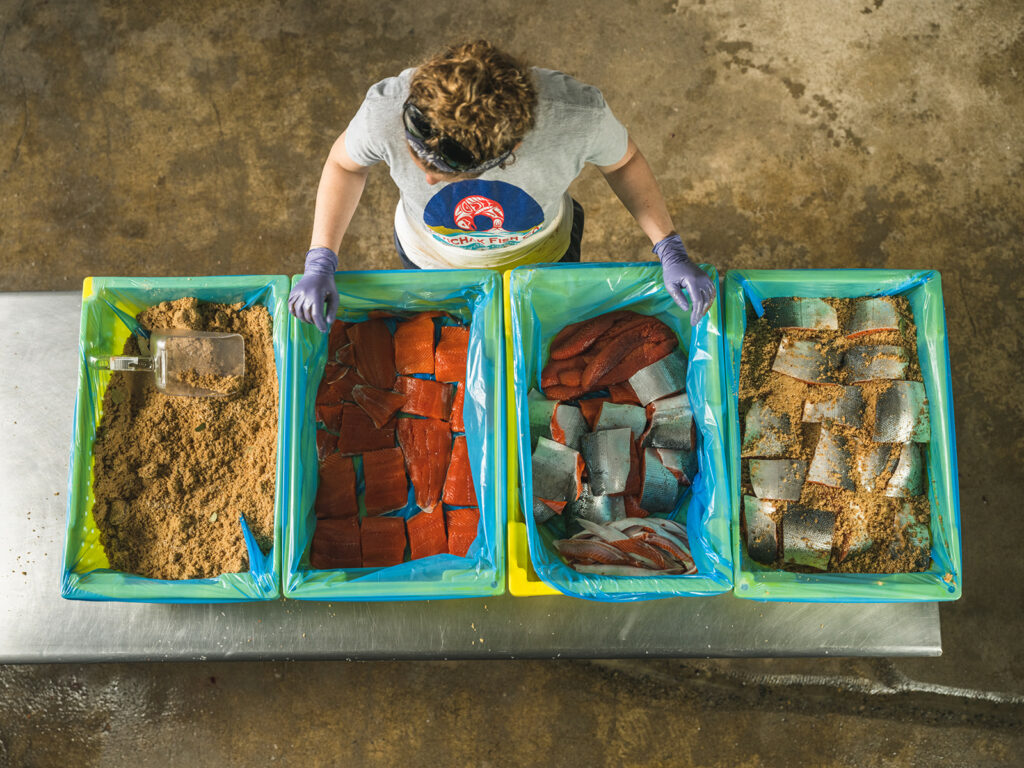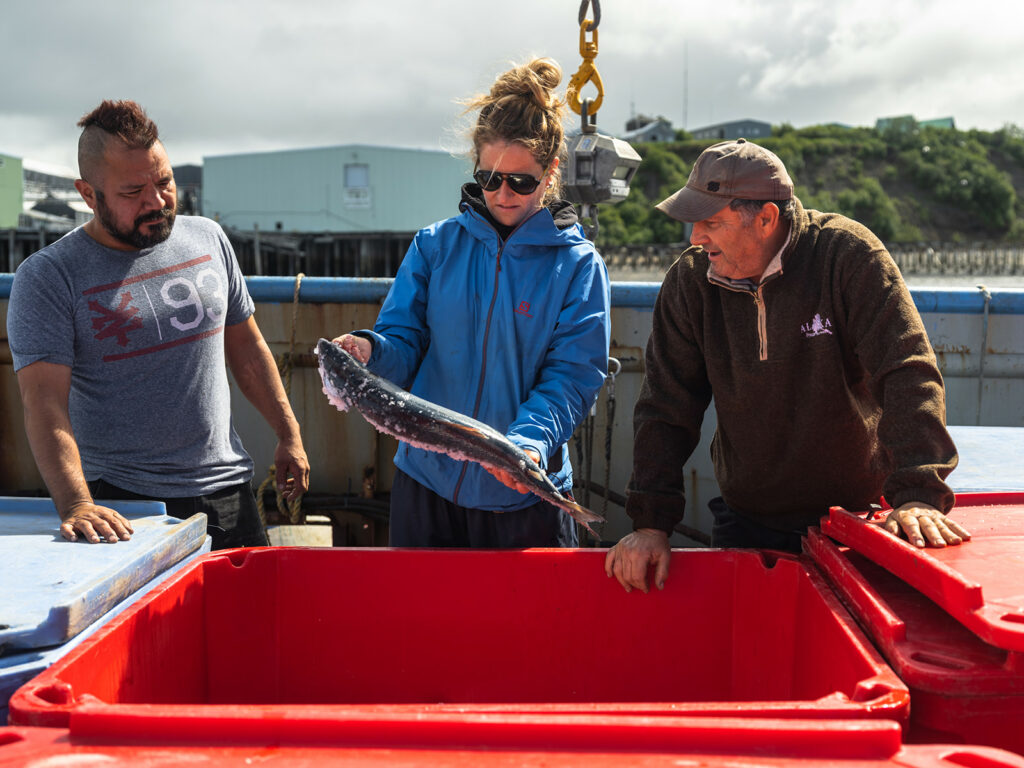SAIL Mentorship
The SAIL Mentorship program is focused on building the capacity and resilience of the participating businesses. Mentees not only receive coaching on the operational, finance, marketing, and HR components of their businesses, they are also guided through a metacognitive process by which they build capacity to perform strategic planning, goal setting, assessment, and reflection, so that they are prepared to continue this work on their own in future years.
SAiL Mentorship Details
Applications are currently closed until the next selection cycle beginning mid January 2024. If you haven’t already been a participant, consider applying for our SAIL Catalyst in early November to be considered for our winter cohort.
Up to 4 businesses will be accepted annually into the SAIL Mentorship program. The application process is competitive and not all businesses that apply will be accepted into the program. For reference, in our launch in 2024 there was a ~25% acceptance rate.
Community-based and values-driven seafood businesses in the United States who are interested in scaling up their operations, and sell a portion of their catch directly to consumers through community supported fisheries (CSF), restaurants, institutions, and/or other similar outlets are invited to apply. Access to the internet, a computer and a webcam with a microphone are required to participate. There are a number of similarities between the candidates that apply for both the SAIL Mentorship and Catalyst Programs. For more information on each program, check out the flyer below. We hope it provides clarity on which program is more appropriate for the needs of your business. Just getting started? Consider checking out our SAIL Catalyst program!
Check out the SAIL Program Flyer
Preference will be given to fishers and harvesters who:
- Are Black, Indigenous, Latine, or identify as a person of color
- Are Women or LGBTQIA+
- Live in/serve low income/low access areas (http://www.ers.usda.gov/data-products/food-access-research-atlas.aspx)
- Produce a value-added product from a raw commodity they are fishing, raising, or harvesting
Program Format
- Initial Assessments
- Mentorship begins with an in-depth, in-person review of the current business, its operations, and its systems. This takes place at the site of the mentee’s business over 1.5 days at the start of the program.
- During and immediately following the initial assessment, businesses are guided through a process of establishing a 3-year vision, 1-year goals, and first quarter goals.
- Bi-weekly meetings
- Mentor-mentee teams meet virtually every two weeks for one hour throughout the year. These meetings are structured in the following ways:
- The mentee reports out their progress on their quarterly goals.
- The mentor trouble-shoots where mentees are stuck, and works to determine root causes of problems, provide examples of solutions, and/ or resource them with reading or other contacts to get them on track with their quarterly goals.
- The mentee sets their actionable items for the next two weeks, calendarizes time to work “on” the business rather than “in” the business and confirms the timing of their next bi-weekly meeting.
- Mentor-mentee teams meet virtually every two weeks for one hour throughout the year. These meetings are structured in the following ways:
- Quarterly Reviews
- Each quarter, teams replace one of their bi-weekly meetings with a 2-hour quarterly meeting. In these meetings mentees
- Zoom out to the big picture and look again at the 3-year vision and the 1-year goals.
- Reflect on whether they have achieved their quarterly goals, and why or why not.
- Set new quarterly goals for the quarter ahead.
- Each quarter, teams replace one of their bi-weekly meetings with a 2-hour quarterly meeting. In these meetings mentees
- Annual Review and Mentee Debrief
- Towards the end of the year, mentees report-out on their annual progress toward their 3-year and 1-year goals, reflecting on what they have achieved compared to what they expected to achieve. They then adjust their 3-year vision accordingly and set new annual goals for the year ahead.
January 31, 2025: Application Deadline
Early February: interviews and final selection of 4 participating businesses
Mid-February 2025: Initial meetings between mentors and mentees and scheduling mentor site visits
March 2025: Initial in-person site visits and assessments
April 2025 – March 2026:
- Bi-weekly mentorship sessions
- Quarterly reviews once/ quarter
March 2026: Annual review and mentee debrief sessions.
The SAIL Mentorship program is valued at ~$25k per business, but remains free of cost to participants. This is made possible by grant funds from the Builder’s Initiative.
If you are interested in financially supporting future SAIL programming you can donate to the Local Catch Network fund. If you would like to volunteer or provide professional services please contact us.
SAIL Mentorship is made possible in partnership with the leaders of a Canadian CSF program, Skipper Otto:
Sonia Strobel is co-founder and CEO of Skipper Otto, a Community Supported Fishery (CSF) based on Coast Salish territory in Vancouver, BC, Canada. Sonia worked for decades in a variety of community-based organizations, non-profits, and as a high school teacher. A member of Community Supported Agriculture programs since the early 90’s, Sonia brought her knowledge of CSA’s to the family fishery, first conceiving of the idea for one of the first CSFs in the world in 2008. Through her innovative, sustainable seafood subscription model, members pre-purchase a share in the catch before the fishing season. This unique partnership between fishers and consumers guarantees harvesters a fair price for their catch, protects a traditional way of life in BC’s coastal and Indigenous fishing communities, and disrupts a seafood system fraught with social and environmental injustice. Skipper Otto is a certified B Corp and certified Living Wage employer. They educate consumers about important issues in fisheries and the value of eating with the ecosystem while advocating for just policy reform.
Today, Sonia is a sought-after speaker and mentor throughout Canada and around the world, supporting the development of community-based food systems. She is on advisory committees with the Fisheries for Communities Coalition and the Local Catch Network USA. In 2023, she spearheaded Local Catch Canada where she has convened harvesters, academics, Indigenous leaders, NGO’s, and fishing businesses to envision more just and equitable fisheries and food systems in Canada. She was an inaugural expert in Vancouver Island University’s Seafood Business Accelerator program in 2023, and co-creator of Local Catch’s mentorship program in 2023. She continues to mentor many leaders who are starting and growing socially conscious seafood businesses across Canada and the USA.
Chris Kantowicz has been the COO and co-owner of Skipper Otto Community Supported Fishery for 9 years. He has a MBA from University of British Columbia and has grown several small companies in various industries over his career. Prior to Skipper Otto, Chris created and led the Innovation Hub at the University of British Columbia’s Sauder School of Business, an accelerator program for social enterprises. Over several years, Chris also mentored multiple entrepreneurs as their business coach in the program including Sonia at Skipper Otto.
For questions, watch our recorded information sessions, or contact Local Catch (info@localcatch.org)
Four seafood businesses are participating in the 2024 SAIL Mentorship program.

